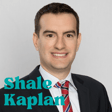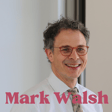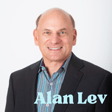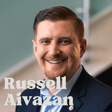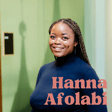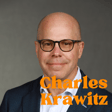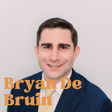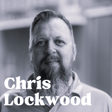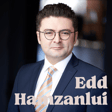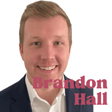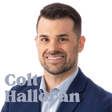Career Beginnings: Investment Banking Aspirations
00:00:25
Speaker
I don't want to know everything. Like, first of all, did you go into college intending to work in investment banking because your degree combination is so interesting? I saw finance, business, Italian in there. um you know When you look at a LinkedIn for someone and and and see a trajectory, I find LinkedIn can look very linear. And as we all know, it is
Academic Transition: From Pre-Med to Finance
00:00:56
Speaker
Lemire, it is really Lemire. So that's funny that you mentioned it. And I went into the investment management space. So a little bit different from from the banking side. But um you know when I started college, I think um I was actually talking to a Georgetown friend about this last night. I applied pre-med. If you can believe it, I applied pre-med. I was very good at chemistry. um I was a chemistry tutor. That's how I made money on the side in high school. So I applied pre-med and something must have happened to me in that summer. I don't know if I
00:01:31
Speaker
watch Grey's Anatomy, which was really hot at the time or something else. But when I came to Georgetown, I was like, yeah, no, not pre-med. And you know in addition to my chemistry work, I did take in high school economics classes at the local city college. So I ended up changing my major to economics. And you know what? my My major didn't end up being economics in the end. it was um It was finance and international business. So I think college, it's as much ah finding out what you don't want to do as what you do and and you come in with these passions and assumptions and and part of that time is is testing it and refining it and and I would say after college that process continues. So there is a lot going into it and it it changed over time.
Family Influence on Academic Choices
00:02:17
Speaker
Now, was your decision to change academic trajectories supported by your family? I don't know if you can give us a little bit of color on what your parents do, but I'm coming from a very, very similar background where I started as a pre-med, but you know both my parents are very heavily entrenched in healthcare. care So for me, the decision was way more guilt-ridden than it should have been. I don't know if you had a similar. the whole experience here. That's a great point. and that there was There was not a lot of guilt. um you know i grew up I did grow up in a household that talked about money, um you know that that incorporated conversations around money early on and and really encouraged me learning as a young person about different career trajectories. So they're like, ah you have to be a doctor, you have to be a lawyer, you have to be in finance. I i did feel
00:03:09
Speaker
somewhat of a pressure on you know because I had the the privilege of you know college being saved for and supported. You do have to launch. like you You do have to launch when you leave college and and have a dog a job and dog. I would love a dog, a job. um and so that was That was the pressure more so than any specific sector. Yeah.
College Challenges and Finance Passion
00:03:32
Speaker
When you get into studying finance, were you kind of immediately thinking along those same lines of like, okay, well, I'm in this fantastic school. I'm in a high earning potential major. What exactly am I gunning for post-grad? Or were you more so kind of led by a mentor, by a professor, kind of pushed you towards the JP route? How did that look?
00:03:56
Speaker
You know, I, to be quite honest, did not love a lot of my intro to business classes. They were very, they were very hypothetical and it was just hard for me. Like I'm much more like, I need to see something. I need to be in it. So if we're, if I'm in an operations class. and we're talking about just-in-time manufacturing, like I need to see that versus talk about it. Similarly with marketing, like I don't know if you've taken a marketing class where they have the four quadrants and this and that. I was like, I don't i don't know.
00:04:31
Speaker
So for me, college was most formative when I got into topics that were more specialized. um So for example, I took a principal of investments class at Georgetown. I signed up for it. I was super interested in the topic. And like for me, like I'm a hard worker. I've always had to study. I've always had to put my head down. like a lot of A lot of that doesn't come naturally for me. It always frustrated me when it really just came naturally to to other individuals. and they care they could just hop into a test and take the test and ace it. So for me, ah principles of investment that was interesting because when I was studying for it and taking the test, like it was very easy. like All of those concepts made sense. The calculations made sense. I did well on the test. like I didn't have to work as hard. So I was sort of like, oh, interesting. um Similarly,
00:05:21
Speaker
I worked on campus for a student run credit union. It's actually the largest student run credit union in the country. So to be like truly running a bank where you start as a teller, but you get exposure to operations and member service and credit and collections and whatnot for me, that was That was fascinating because you saw you saw everything happen day-to-day. You balance the books, you help with different issues. You saw your credit and collections counterparts yeah when sort of something went um you know something was happening on the lending side. So that that visibility was helpful for me. And lastly, I went um on a summer study abroad to Hong Kong studying finance and international business. and again
00:06:06
Speaker
When you're talking about international business, it's easy to talk about, but much much more different when you're in a giant Walmart in China and like understanding the differences between the business model and the product set and how consumers interact with the space. and and so For me, it was really um just delving into it versus the classes. To be honest, the classes, I had a really hard time. and then um I was able to tap into effectively older kids, like students who were a few years old or even a few years out of college, mostly who had come through the credit union. So who were also working there, who would have launched and then came back and talked about their experience and what was relevant and what they liked and didn't like. So I kind of had like and you know some guidance from from the older kids who are who had done it, which is really important. Yeah.
00:07:01
Speaker
Okay, that makes sense. so And would you say that before you started working at the credit union, so let's say like towards the end of high school or so, would you say that you had a pretty solid basis of understanding of personal
Curiosity and Engagement with Global Finance
00:07:14
Speaker
finance? Like whether by way of having conversations with your parents or seeking out knowledge of your own, did you kind of go into school and knowing that you wanted to make a certain amount of money so that you could achieve XYZ? I think going into college, it was more so a curiosity and ability to engage with a person or topic that was arguably like more mature than my age. it really It was that curiosity and inquisitiveness and ability to ask questions in addition to like a deep passion for
00:07:52
Speaker
what's going on across economies. like I was fascinated with China in high school and everything going on in China. I just like always read about China, and so it's not it's not shocking that I then you know studied abroad in China, but I think it's more that curiosity piece than really having already been in it um at that age and and investing. answer Yeah. So you mentioned the importance of having networked with older kids, well excuse me, in the credit union that you are working at, was it through one of them that you got a foot in the door to work for a JP post-grad or actually, was that really your first job out of college or did you do a little bit of exploring upon graduation, do any internships or anything like that?
Internship Journey with JP Morgan
00:08:36
Speaker
Yeah. So while I'm in college, I think my first summer or one of my first summers out of college, I was um
00:08:42
Speaker
I, what did I do? I was, uh, like a counselor at an art cam and then I had, had, excuse me. I had a couple of internships, but my first formal internship was actually with JP Morgan when I was in college. So I went through the formal recruiting process, um, to your original question. back then, and I know things are a bit different now, but back then, you got the heads up that like a JP Morgan was coming to town, they were doing a big recruiting session. Yeah. And you know, there was usually like a big event and then a smaller event for individuals who were like really interested in JP Morgan. And I say like having the linkage to some
00:09:30
Speaker
individuals who already went through it is a way in which, you know, I got into the room for those smaller sessions and work at interviews and whatnot. It was a formal process. Now I know the process is totally different, right? And it's video interviews and and leveraging AI and and whatnot. But back then you had to show up, express interest, and then have a lot of the knowledge of of people who had gone through it. um to navigate the system.
Working During the Financial Crisis
00:09:58
Speaker
I will say the system broke ah hum kind of when I was in college, and that was during the the global financial crisis, which was arguably like the peak formative time for securing that internship between your junior and senior year. And so there were a lot of those information sessions. um you know I can't remember if it was
00:10:20
Speaker
Bank of America, if it was Merrill Lynch, but those information sessions, they're like, we're probably going to be a very different organization six months from now than than we are today. So it's also having the the flexibility during times of stress and distress to to know the process may not hold up. When you looked around those smaller rooms at your competition, because that's essentially what it was, right? Did you feel as though your experiences and just you as a person fit in or were you kind of like ah a a different character from the typical person who was gunning for that sort of role? and her I would say I was more typical than not because I was in business school at college.
00:11:07
Speaker
But there were you know always back then the individuals, so say you go to these rooms, you go to the after sessions, you apply for the job, you're waiting to see if you even get an interview slot. Like applying for an interview slot does not guarantee an interview slot. And there were the the kids, and I'm also going to say there were the guys who everything they applied for, they they got an interview. And um so so just showing up, didn't guarantee an interview, and and just getting an interview obviously doesn't guarantee a a job. But um I would say from from my perspective, I felt qualified to be in the room because I you know had the business experience and was taking the classes. yeah
00:11:52
Speaker
versus someone who may be coming into the room and have you know be an English major or government major or whatnot. you You need those backgrounds in financial services. You need diverse backgrounds um you know from from kind of one's origins and background to to what they're studying. But I do feel like those students probably felt ah different in the room because they felt that they had to explain why they were an English major or government. yeah At the end of the day, it doesn't really. Yeah. And when you were eventually hired, what was your initial role? Was it private wealth advisory related or did you start in a slightly different niche? Yeah, so I worked in JP Morgan's institutional business. so
00:12:41
Speaker
it is in the investment business within JP Morgan that serves the investment needs of institutional clients. So an institutional client could be anything from a corporate pension plan to a public pension plan to an endowment or a foundation or sovereign well-front fund. These are like the really big entities that are managing money for some objective, where if you're a financial institution, you want to be their go-to for the money management conversation and it could be for a particular strategy or for an asset class or for the entire portfolio management. um My first job was in JP Morgan's Chicago office, and so the subset of clients that I primarily worked with were public and corporate pension plans,
00:13:34
Speaker
and It was a fascinating time because if you think about the combination of global financial crisis, impact on financial markets, and then what a pension plan is solving for, and and we'll take a public pension plan. Excuse me. ah Think of a pension plan that is geared for teachers where the underlying pool of assets is being contributed to and growing over time so that you know when a teacher that is in the system eventually retires, they have a set value of income that comes back to them in in the form of pension effectively for
00:14:17
Speaker
their lifetime. sir As you might imagine, um there's a lot of uncertainty around that model in business because you don't know how long someone's going to live. You don't know how investment markets are going to do. like There are all of these factors. And so when you take that model and then you stress it during a time of investment stress and distress, what happens is the asset base falls, but you still have the same pension payments that you're going to have in the future. So if you think of the the asset base being the assets and the future pension payments being the liabilities, there is a huge
00:14:53
Speaker
mismatch between assets and liabilities, which is a lot of what one is solving for in financial services, whether it really is a pension plan or a company or a personal balance sheet or whatnot. So I basically came in during that time, which was fascinating. And it was also around the same time an advent of a lot of institutional investment in the private alternative space, which is the space that's not stocks or bonds. So it could not have been a better Investment 101 like I loved principles and investments but this was just like Crash Course Investment 101, and I, um you know, I served in in an analyst role through a vice president role.
00:15:37
Speaker
And that role moved me to New York City, but um but it was kind of like a fascinating start to my career. Right. And now I'm curious if your office slash learning environment, is it all different to the brokerage setting in which I am working now as an analyst? Are you basically told to ah swim or die, for lack of better words, when you first get
Learning and Upskilling at JP Morgan
00:16:01
Speaker
there? Or do they really inundate you with all kinds of educational materials? basic accounting principles sort of like mini classes or anything like that before you do anything client facing which i assume you wouldn't be doing as an analyst anyways but
00:16:16
Speaker
I think big financial institutions, and there are certain ones, and J.P. Morgan was this for me, are terrific areas for learning for a number of reasons. so One, you join. You're in this big analyst program. It's two months. um and Again, because the the subset of analysts are individuals of diverse backgrounds and experiences. You have the finance major, the English major, whatnot. like You do have this level setting experience of Of learning and principles of it and investments and accounting and whatnot so that's that's point one um point two which cannot be overstated is truly.
00:16:59
Speaker
like learning on the job, um which you know i'm I'm so fascinated by is as we are kind of more of a dispersed workforce after the pandemic. But like I would sit, and it's funny, over the years, my my cubicle walls went lower and lower. I think it followed the trajectory of like office space. But like when I first started, my cubicle wall was really high. It was almost like I was in my like mini-cam house. And then it went, went lower and lower. But um I would literally like just sit with my ear to my cubicle wall and like in in the best of ways and just listen to what everyone was saying and how they would phrase certain that how they would phrase certain things and propose an investment idea and challenge something and like that cannot be that the importance of that can't be overstated. um And then
00:17:50
Speaker
There is the kind of the the technical upskilling, which can happen in in different ways. so For me, it was pursuing my chartered financial analyst designation. For others, that may be you know CFP designation, KIA designation, going to business schools, um but in a big work environment, that's very very much supported, and I think very important when you're starting. Did you ever face or grapple with the idea of going to get an MBA or any sort of advanced business dec degree? Or did you feel as though it wasn't necessary for your career path?
To MBA or Not: Career Growth Decisions
00:18:31
Speaker
For me, um I did think about it. And I so i still think about it, to be to be quite honest. on For me, I knew what I wanted to do was not so dissimilar to what I was doing. So I knew it wasn't going to be a dramatic shift. I i figured it would be a shift in institution or focus area or whatnot. So for me, that would have been a very um expensive shift, especially after having done the CFA program, the opportunity cost of that just in terms of time and yeah studying and whatnot. So um I considered it, but I almost thought about what
00:19:11
Speaker
what could be looking forward is like Cam's version of an MBA. So working, keep earning money. You have the the technical side of the CFA. You you know have the income to go take trips. And then what's actually happened over time is I had a lot of friends go to business school and um you know being in new york a lot of them come back to new york so i've i've had the luxury of sort of like stealing members of various business school classes whether it's you know harvard or stanford or or kellogg or whatnot um in in friends of friends um so so that's been fun but it's um you know business schools
00:19:56
Speaker
a really important pivot for a lot of people. and And for me, I felt that I could probably do it on my own, given that I was that far off of of where I wanted to be. Right. Right. On that note, and my impression of this might be skewed because, as you said, LinkedIn kind of sometimes paints too linear a picture of people's paths, but it seems as though you transitioned a little bit towards working more with people one-on-one, sort of in the areas of estate planning and thinking about generational wealth.
Transition to Wealth Management
00:20:29
Speaker
There was some mention of working with high net worth individuals, so I'm very curious
00:20:34
Speaker
sort of the extent of work that you did in that area before intensifying it at your time at Elvis, like that seems to be the primary highlight of your work there. Is this the case or did you sort of interest it in those things and then jumped to Elvis in order to more intensely pursue that? So I spent eight years on the team that I meant mentioned that was made of pension or institutional money, including pension money. um And so that took me from Chicago to New York. I was in New York and then spent probably in retrospect, um too many years
00:21:12
Speaker
trying to figure out how I progressed within that construct. And that construct faces a number of um challenges and obstacles, which aren't insurmountable, but they exist. um One is the fact that, ah you know, for someone who is in my position, at the end of the day, it's an institution to institution relationship. So it is J.P. Morgan serving a New York state pension plan. And this is just an example, yeah but state pension plan. And the the person who is involved with the relationship is very important, but at the end of the day, it's an institutional to institutional relationship. There's also the element that there are only so many institutions out there. They are mapped out. They are tagged. like One's not going to pop up. You may have some new sovereign wealth funds pop up. You may have some new corporate cash pop up, but like really the true institutions
00:22:08
Speaker
are known, identifiable, tagged. um And so there's really only a specific subset of people who can cover it. And as I look i looked up, they were individuals who were not going anywhere. um They were going to stay with those relationships for a while. As someone who at that time was in you know my late 20s, early 30s, you just kind of acknowledge that and move on. um That space is is also interesting because the way in which institutions invest has involved, um so they you know they allocate less to to public investment strategies that are actively managed. They're allocating more to
00:22:52
Speaker
private investment strategies, they're developing strategic partnerships, they're doing direct investments on their own, and so institution is not changing. and It makes it harder to serve those types of clients. So this like realization was happening over a number of years, and to be quite honest, um you know and to be transparent, like a lot of that I related back to me, even though it was more like structural factors. Like, why does this exist? why you know Why can't I move up? All this sort of stuff. And um at the same time, I met some terrific people in the wealth management space who
00:23:33
Speaker
very clearly sort of painted a picture of like look can like wealth is being created by individuals every day. and and There are like a tagged number of individuals creating wealth, and you can be a part of that. and You can more you know actively own your relationships and your business strategy. At that point, I was just like, sign me up. Absolutely. And so, um you know, served in that capacity um at a big financial institution, JP Morgan, for a number of years. And and then through that um experience, the opportunity at LFS came up. Yeah. Wow. Okay. so
00:24:10
Speaker
I have so many questions that sort of relate to giving young people advice about how to set themselves up as they're just starting
Diverse Clientele in Wealth Management
00:24:19
Speaker
their careers. But I don't even really know the context in which to ask those questions. Like at JP Morgan, when you started to take this more individualized approach, what was your clientele like? Were they company heads? Were they people that worked within the firm themselves? Or who were you advising? Yeah, it was a, it was a mix of individuals. So I had a number of um clients in professional services, um which is a great space because but like lawyers, et cetera, because if you think about.
00:24:54
Speaker
their um compensation profile. It is it is pretty consistent. It's very consistent. you know If you think about an attorney at a big law firm too, like they can't manage their money on their own because there are a ton of conflicts, so they need to outsource it. So it's it's very investment heavy, which I loved because like I really loved the investment side of the conversation. um But for other but other advisors, like other advisors could have a very heavy cash business. like The majority of their business could be um you know doing very specialized deposits for clients, or they could have a very specialized lending business. So it wasn't just
00:25:35
Speaker
the investment piece and and you really needed to be well versed in all the areas. But for me, I always gravitated to the investment conversation. So clients who were like consistently adding to their their portfolios like really resonated with me because then we could just talk about market investments and whatnot. And and that's where but that's what I really love. I can imagine that the spread of people that you are working with or that you are working with to this day, albeit at a different company, is just so massive. like The data that you must have on the kinds of careers that these people have, just the decisions that they've made starting from younger ages to their 50s or 60s or whenever it is that they start working with you is super valuable. so What would you say are like the most
00:26:25
Speaker
common professions of people that end up having a pretty significant amount of disposable income with which to invest. And the the that direction in which I'm going with this question is you know if a 17 or 18-year-old woman is listening to this podcast, which is the main demographic for this show, and they want to be well off. I guess that standard is like very subjective though by the time they're 35. What kinds of college majors should they be considering that you've seen come up again and
Career Advice for Young Women
00:26:56
Speaker
again? What kind of actual colleges? What kind of career specialties? like Is there any anything that you can can speak to in that sense? like I know it must be hard too because you have so many different clients, but
00:27:09
Speaker
Oh, that's hard. Look, like we we our clients span the gamut, right? we have We have a lot of individual, a lot of like corporate individuals. So um I call them the highly capable who don't have capacity. So yes, if they have all the time in the world, um you know they could you know really kind of heads down focus on money management, but that would be an opportunity cost for their time and their time is valuable and they come to us. We also have we also work with you know the actors and the musicians and um the the people who worked for a long time for The Man or an and are now
00:27:50
Speaker
consulting. um We work with individuals who have come into money in various ways with individuals who have exited businesses. So I think it's really hard to say um you should pursue this track or that track or to a certain college. I mean, in terms of macroeconomic themes that I'm fascinated by. And because I think that this maybe has some bearing on on next steps is, um you know, we are going through a tremendous energy transition in the United States. um And a lot of that goes hand in hand with
00:28:32
Speaker
technological progress and artificial intelligence but like if you if you read some of the output of these big technology companies and where their needs lie you know they need they need energy um for to to power a lot of what they're doing, but they've also committed to renewable energy by a certain year. And so they are like right and left trying to snap up renewable power. So if I were going to like specialize in a space, i would I would honestly specialize at the intersection of those themes, um you know especially weaving it back into everything going on.
00:29:14
Speaker
with our climate. um that would be So it's harder to say, you know go here or um pick this major. What I will say in terms of our clients and what has what has a high probability of success. like it It goes back to these fundamentals that are not sexy. It's earning money. It is saving more than spending. It is utilizing different tax-advantaged structures, whether it's
00:29:49
Speaker
retirement structures or certain deductions or advantages related to real estate ownership, ah the the advantages to starting one's own business as a small business, and then it's investing, revisiting, rent repeating. I know no one wants to hear that. I know everyone wants to get on kind of like a quick and fast trajectory to to wealth, but if you actually look at like how my clients have built their wealth, like and ah the discipline around those moves. Yeah, absolutely. Absolutely. Making money is not always sexy. No, not at all. So my next next question for you was going to be whether you notice any considerable changes, between the and but but changes differences between the investment goals of women versus men, but
00:30:43
Speaker
I guess the answer to that would be tied to the fact that you ended up moving to Elvis, which seems to have a very different approach to investment advisory in that you do focus on the needs and wants and goals of women. So did you find that JP Morgan, that your clientele was very much male dominated and sort of felt a calling to go explore a bit this other niche? So by the time I left JP Morgan, I had been there for about 10 years, which is, you know, which is a long period of time. And I had a lot of observations and learnings that would have just been a lot would would have been hard to apply.
00:31:25
Speaker
Make financial institution you know in terms of. How I wanted to run my business the investment strategies that I thought would be relevant um you know jp morgan at the time had not spent ah spent a lot of time on the impact investing and sustainability space. I can't speak to it. now and then the end client and addressing the needs of the end client. And so um when the opportunity at LFS came up and it was one of these things where, you know, three three different people said, talk to LFS and I obviously knew
00:32:02
Speaker
Sally Krawcheck, how could you not know Sally Krawcheck and what she was up to, but I didn't fully know how the business had evolved and and that there was like a clear um and sort of precise role for me there. It was my opportunity to really take all these learnings over 10 years, which I felt were valuable and bring it to a business to to help build a business, um to help more women invest in an invested way that gets more money in the hands of women. it So it felt like a no brainer. It was obviously a big risk at the time, um just having gone from ah a big institution to
00:32:43
Speaker
a much smaller company, but I felt that I had a lot to add and it's sort of you know one of those moments. like If there's a moment you're going to do it, it's it's now. Right. yeah Why do you personally think that it is important for women specifically to be really thinking about their financial life as a lifetime commitment money is agency like Money is agency and we live our life kind of guided by our soul and spirit and whatnot. But like at the end of the day, to to move along, we need money to do a lot of that. yeah If you're not in control of your money, it's it's really hard to be
00:33:28
Speaker
in control of your life. And we invest like all this money, we own all this money in leading a full life and what wellness means, you know whether it is relational wellness or physical wellness or spiritual wellness. And then we kind of get to the topic of financial wellness and it's like, like you know yeah no, no, wait a bit. It's a core piece. And if we're going to talk about longevity, we need to talk about women's longevity and and women's longevity um in relation to our male counterparts. We live six to eight years longer. So with not building wealth,
00:34:11
Speaker
is also a longevity and retirement
The Importance of Financial Literacy for Women
00:34:15
Speaker
crisis. so um It couldn't be more important and yet it's so hard to talk about. everyone says you know Everyone says cringe. I've had clients hop on calls and say they feel physically sick talking about money. I've had clients saying that You know, their therapists drove them to vent to us, but it's it's such an important topic and and can't be ignored any longer. What do you think is at the heart of that physical distaste to talk about money?
00:34:50
Speaker
Oh, man, it's I mean, I think it's the the feeling that's conjured. It's a feeling of. scarcity, you know this is you know this is all this is all I got versus abundance um and and the protection of it and the fear of if you put any of it at risk, can it can it come back? Will it come back? Whatnot? That's a scary thought. and and and
00:35:21
Speaker
We have that thought in the context, especially in in the US, and I can't speak outside the US, s but I imagine it may be the case where you know women are truly like the social safety net of this country. like thats ah so that's and and that's That can be attributed to a woman named Jessica Calarco. that's It's not mine, but um we truly are. And so when we already have the burden and the weight of being the social safety net, and then you add on these feelings, it's just, it is, it's a lot. I'm, you know, I'm not going to sugarcoat it. It's it's really hard to wrap one's head around.
00:36:02
Speaker
and It's also hard to not be overwhelmed at the premise of actually taking out time in your life to become financially educated, given just how much information is out there and available on the Internet. like Even if it is free, psychologically, sometimes sitting down to do that can come at a cost. so Do you have any advice like I know I put this in my question list, but if you had a young daughter and wanted to make her really financially aware and independent and capable, what sort of, I don't know if curriculum is the right term, but what would you tell her to do and read and experience?
Teaching Financial Literacy to Children
00:36:47
Speaker
So I'll from experience provide some thoughts around um what was present for me and then like what, no, not like what I wish happened because because my parents did a lot for me, but but kind of additional things that I've identified over time. So um one of my first money memories is when my mom took me to open up my first and bank account. ah which was very exciting. And as you might imagine, my deposits were like the coins and dollars from my lemonade stand. They were the $2 bills from my grandparents. I don't know if kids know what $2 bills are. My grandparents always sent us $2 bills. So yeah for the $2 bills and
00:37:31
Speaker
Talk about an environment that in itself is scary. We walked into the branch. It was dark wood. It was dark inside. There were all these documents we had to sign together and we think about the way in which financial institutions portray themselves. to clients and and customers and it's no wonder why it's daunting. It's no wonder why like even just walking and in the door is hard because it was scary. At least I had my hand with me. What's funny is I opened up a savings account
00:38:05
Speaker
the savings rate at the time was in like the 5% or so, not not dissimilar from where it is now. And so the great thing is when I got my bank statements every month, I could see myself earning interest and earning interest without really having to do anything or contribute more money. So it was an interesting first experience in Compounding an interest there's a point at which the interest rate went down and I you know had to learn that Interest rates are not static and you and you need aware and maybe there's a better placeholder for that money So I think something like that um In addition to operating with physical money that is so key um and in an era of
00:38:57
Speaker
Apple paying credit cards and this and that, I think it's really hard for kids to learn the value of things. So how you know someone wants to approach the kind of operating of the conversation with physical money. If I had to go back to the lemonade stand, I'm going to critique the lemonade stand for a second. Because if you think about a business, you um like let's say you're making lemonade, you have to buy your supplies. You then put the stand out, you sell the lemonade. ah you know that's your revenue and you know whatnot. um We never had to buy the supplies, so we didn't get a we didn't get like a super good lesson in and you know like the cost of the goods we were selling and supply chain and inflation and whatnot. So that would be my like lemonade stand 2.0 example.
00:39:50
Speaker
my My dad was the one who is really who like really encouraged the connecting to older people but you know people older than me with different careers and whatnot and taking them to coffee, which you can imagine for a young person is like excruciating and not what you want to do, but and that's always a good route. And then from an investment and charitable giving perspective, um to the extent that parents are able to open up a Roth IRA for their kids, which can be funded if it's tied back to some sort of earnings of kids, which could be, you know,
00:40:27
Speaker
anything from chores to something related to a family business or an LLC or whatnot. um That is huge because, one, that um you know is an establishment of really long-term strategic money um on a child's behalf, but can also be the structure for engaging around investing and maybe identifying some stocks or ETFs or other things that a parent can engage with the child. um
00:40:59
Speaker
on the investing front. Lastly, and and we didn't know about this at the time, but of course I operate in this space in the wealth and the wealth management arena, is establishing a family donor advise fund where you know you can gift money or appreciated securities, actually appreciated securities are optimal into a donor advise fund, which is effectively ah an irrevocable ah charitable giving structure. And as a family, either reinvest money within that and or grant money out over time to charitable organizations. And I think that really helps to engage kids around the idea that, you know, you earn money and you invest money. um But where it's of interest, it's it's important to think about what you value and how you give and giving doesn't have to be monetary, doesn't have to be granting out money. it could
00:41:57
Speaker
time and and volunteering and whatnot, but I think that's a ah really important piece. um and And the Jordan Advice Fund is an interesting way to set that up. Yeah. Wow. As a side note, I'm feeling a little ashamed of myself because I'm realizing how rarely charitable giving actually factors into my notion of personal finance. Not a good thing, but what a great point. Well, you may be surprised. So I think about charitable giving in a few different ways. I think about the very strategic charitable giving, right? Like identifying the organizations that you align with, maybe you're involved with them. Like for example, I'm on a few nonprofit boards. So I would think about like that, that giving associated with them is a very strategic.
00:42:49
Speaker
um Then there is the stuff that comes up that you're probably doing that you're not thinking about. So the friend that runs a marathon and you give to their marathon campaign or something like that. And then there's the the things we can't foresee that we, um you know, unfortunately gravitate to. So whether it's. a natural disaster somewhere, or a war and displacement, and and those are the catalyst-driven things that, again, we should sort of mentally and financially account for, but we unfortunately don't know until until they happen. Yeah. Yeah. not I'm going to have to look into that myself.
00:43:28
Speaker
When it comes to, let's say now we're a little bit older in the timeline of a woman's life, maybe 25 to 30 years old, if someone has a little bit of disposable income, and again, I know that's so subjective, so it's going to be difficult to give any sort of generalized advice, but what resources are out there that people could use to self-educate about how to put those savings to work?
Ellevest: Empowering Women in Finance
00:43:52
Speaker
or put that money to work in a way that's a little bit different or more sophisticated than just throwing it in your bank account. Ellevest. Yes, all all the links included. but Yeah, like truly. I think we've got most questions covered. i like This is very a very self-serving comment, but um
00:44:16
Speaker
We continually evaluate the advice we're putting out and the relevance of the advice, yeah gravitating to it. and if we don't have if If someone's looking for advice or guidance and we don't have that article, please email me because we will create that article for you. i mean we just look like there aren't other financial services institutions out there that serve women in the same way that we serve women. So we get like we get the questions, we get the host of questions and and we respond to it and and we make that information available because we know it's a question from one. and We know it's a question from many. I'll give you an example. So we're hosting another shameless plug.
00:45:03
Speaker
by all means that's awesome ah so We're hosting on Tuesday a um like a free and open webinar in conjunction with Maven, which is ah a women's health platform and and often a ah benefit through companies focused on family building from like the, I'll say the traditional and straightforward, even though there is no traditional and straightforward family building to to ways in which one builds a family that is not talked about and taboo and
00:45:37
Speaker
We put this webinar together, um kind of like to to test the space and understand, you know, is it of interest to our group? And if so, you know, what what else can we do? yeah Thousands of registrants at the you know at this point. like ah you know Obviously, it hasn't happened yet. but um you know But we're we're able to see, given everything we do, the the topics and the areas of interest that that women are gravitating to. Right. Well, just the notion of having a space that you know you can go to to ask questions and not just ask questions, but know that somebody is going to be able to answer them is so outside the realm of what you're able to get in, quote unquote, real life, where
00:46:21
Speaker
so many friend groups, at least I can only speak in my own life, but people are afraid to talk about money. Like where we don't hesitate to go out and spend a whole bunch of it to have a good time. But is anybody really being honest about their financial positioning and about what their goals are and whether their lifestyles are an adherence to that? Absolutely not. Yeah, yeah and goals are are different and and everyone everyone's goal is different and and there's no right and wrong. You even think about sort of where you want your money to be when yeah aren you know on this planet anymore. um You know, I have some clients say, how do we get it as close to zero as possible? And clients who say, you know, like I want to
00:47:09
Speaker
max it out and then give it all away or I want to provide security to family or my community and there's no wrong answer there, but you have to very much sort of be honest with yourself around those goals, like the last thing around goals too. um So part of this webinar and family building is focused is also focused on um egg freezing where you know may not know if it's not a required surgery and if it's not covered by one's employer.
00:47:44
Speaker
is assumed to be elective and if you're kind of going through this process you really pay all all the costs and it's a very it's a very expensive. Thing to do for a long term optionality like in our traditional model where you know the majority of. Financial advisors out there are you know. 50-year-old white men, nothing wrong with them, but like but truly the majority or over 50-year-old white men, like how is that conversation going to go if you are 25 and saying, like I'm going to eventually do this before 35, how do I save and invest for it? like I think that's going to be a really hard conversation with someone to the point where someone may not ask the question, which is a problem. so
00:48:30
Speaker
so it's It's important to have someone across the table from you, whether it is a person or an institution, where you can ask the questions, because if you don't ask the questions, you don't get the answers. Yeah, absolutely. At the end of the day, money is a tool, right? It can really help you. I mean, it's the ultimate determinator of whether you're living the life that you want to and being able to speak to somebody who can relate to your actual real life considerations is so important. Now that you mentioned it, i I can't imagine a reality in which it would make sense to have my financial advisor be an older man. Like what?
00:49:08
Speaker
So for people who are listening to this episode and actually interested in checking out Ellevest, the first question that comes to my mind is, do you guys have an income threshold for clients? Do you have to be certified or vetted in any type of way to become a client? No, we've structured our business where we can meet our client where she is. So every, you know, anywhere from just getting started, these are dollars being invested, learning, trying to create.
00:49:41
Speaker
sustainable systems around money to that individual who's built wealth for a while or come into wealth where we're managing you know millions of dollars for her, tens of millions of dollars for her. There are obviously kind of different approaches and and models to that, but the focus is meeting her where she is, growing with her because she will grow and and we're really proud of that. Yeah. Wow. I'm going to have to check you guys out myself. Please. So cool. And last question. I know we have a hard stop here at 1230, but if you really reflect on your entire professional journey up until this point, do you think that you should have done anything differently?
00:50:30
Speaker
Oh man, I think that there were points of feeling stuck or frustrations that and ended up being learning experiences. It's so much easier to say in retrospect, um you know, one thing I wish that I did from the beginning that I should still kind of focus on now is being sure to track qualitative and and quantitative progress in a job because, you know, at the end of the day, the The way in which big companies, if someone is at a big company, the way you're evaluated is sort of your reflection of yourself, your other's reflections of you. And data is is a very powerful force. And and to have data and and metrics around how you're doing um ensures that someone else's qualitative piece, if it's
00:51:27
Speaker
based on a one-off experience or whatnot is like a lesser part of that overall evaluation. And in that vein, I think there's no better advocate for oneself. We're all going to have these tremendous bosses. We're all going to have these not so great bosses. um If someone is so fortunate to have a tremendous bosses, I have had over the years You still have to know that that you're your best advocate um and don't outsource that. yeah Yeah, that's so true. Protecting your ability to move on to different companies seamlessly if an opportunity isn't right for you is so, so vital.
00:52:08
Speaker
Actually, I know I'm in a period of my life right now where a lot of my peers are transitioning between different companies, and this is a stressor for them. A few years out of college, people look less and less at your degree and more at what you're actually doing on the day-to-day at your firm. So that's super great advice. It's hard too because more and more is in a um um virtual setup, right? Even if you're you're at a company where you're in the office three to five days a week, you're still probably leveraging technology in a
00:52:42
Speaker
that was different from several years ago. And that's nuanced, too, because it's just it's harder to read tone, it's harder to read body language. um There are distractions that hit us right and left, you know, there's the the messengers and the phone and and whatnot. So I think it's even more important as we like continue on this like digital path.
00:53:07
Speaker
Cameron, thank you so much. This was wonderful. I appreciate your time. To an extent, i I can't even say thank you. Thank you for the terrific questions. It was an honor. I'm so glad to be with you today.

